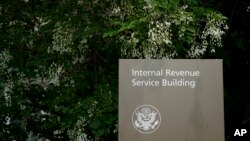Investing in Internal Revenue Service modernization and enforcement improvements could generate additional federal revenue, the U.S. Treasury Department said Tuesday.
Treasury now estimates that an $80 billion investment could yield up to $561 billion in revenue over the next decade due to an increased ability to collect overdue and unpaid taxes. This is a significant increase from the previous estimate of $390 billion.
The increase in estimated revenue is attributed to improvements in IRS technology, operations and enforcement capabilities funded through the Inflation Reduction Act of August 2022.
The changes are designed to improve voluntary tax compliance. Compliance is one of the biggest issues facing the IRS, as the tax gap — the difference between taxes owed and taxes paid — has grown to $600 billion annually, according to the agency.
The Treasury's increased revenue estimates come at an important time. The Senate is considering expensive border security legislation that includes aid to Ukraine and Israel.
Last year House Republicans incorporated a $1.4 billion reduction in IRS funding as part of a debt ceiling and budget cuts package passed by Congress. Another $20 billion from the agency was used to offset increases elsewhere in the federal budget.
National Economic Adviser Lael Brainard stressed the necessity to support the Internal Revenue Service if the U.S. is to reduce the federal deficit.
"This analysis demonstrates that President Biden's investment in rebuilding the IRS will reduce the deficit by hundreds of billions of dollars by making the wealthy and big corporations pay the taxes they owe," Brainard said in a statement.
"Congressional Republicans' efforts to cut IRS funding show that they prioritize letting the wealthiest Americans and big corporations evade their taxes over cutting the deficit," he said.
Treasury's Deputy Assistant Secretary for Tax Analysis Greg Leiserson says the audit rate of millionaires fell by more than 70% from 2010 to 2019, with the audit rate for large corporations falling by more than 50%. The additional IRS funding is intended to help combat this trend.
The Republican chairman of the House Ways and Means Committee, Jason Smith, said in a statement that the report “calls for even more IRS funding, uses pie-in-the-sky numbers, all without being straightforward about where the burdens of massive new enforcement efforts will fall."
Some information for this report came from The Associated Press and Reuters.





